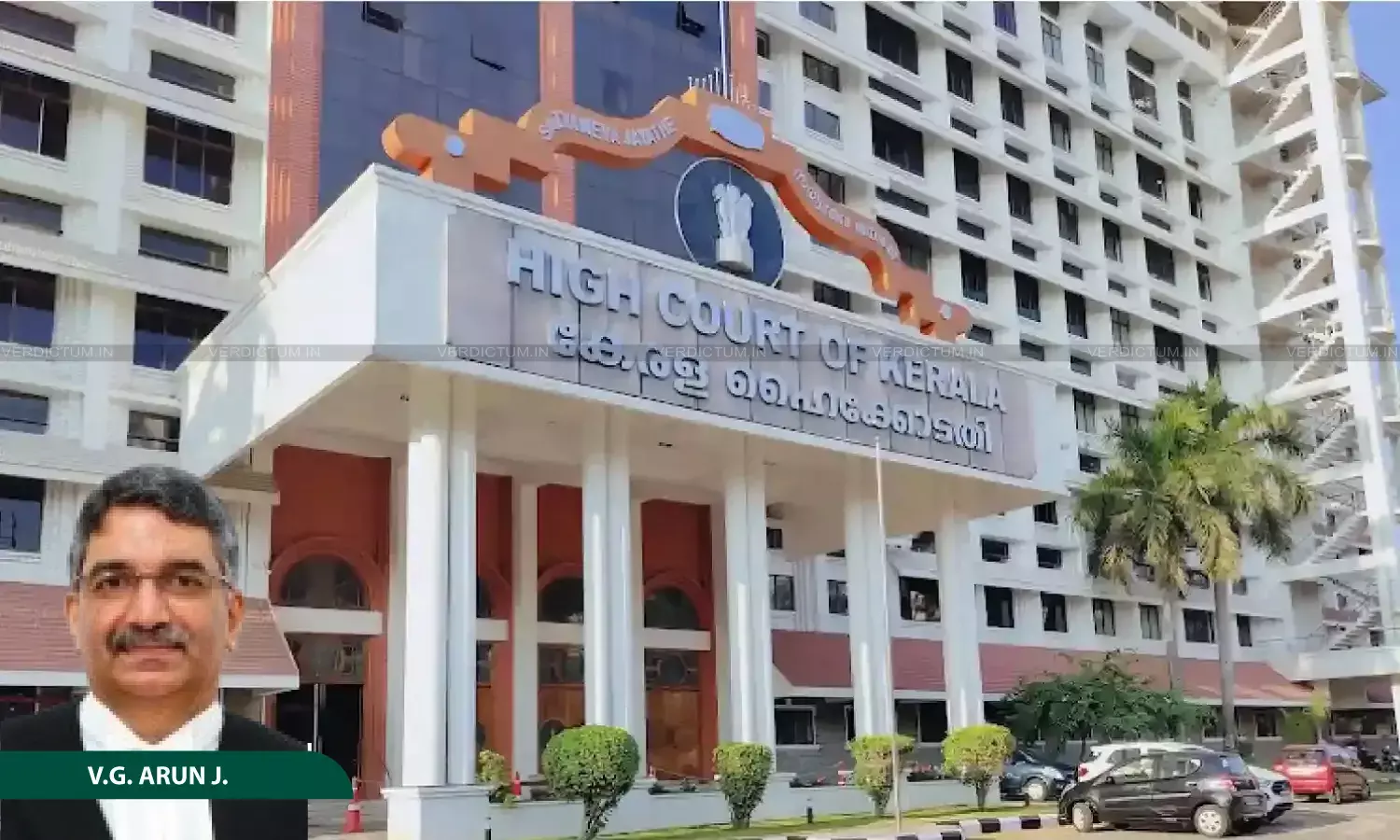Not Necessary That Words Spoken Must Be Capable Of Compelling Suicide: Kerala High Court Refuses Plea To Quash Sucide Abetment Case
The petitioner, one of the accused persons booked in a case registered under Section 306 read with Section 113 of the IPC, had approached the High Court.

Justice V.G. Arun, Kerala High Court
While considering a suicide abetment case, the Kerala High Court has held that it is not necessary that the words spoken must be capable of compelling the victims to commit suicide. The High Court made it clear that the instigation should be suggestive of the consequence.
The petitioner, one of the accused persons booked in a case registered under Section 306 read with Section 113 of the IPC, had approached the High Court.
The Single Bench of Justice V.G. Arun held, “In order to satisfy the requirement of instigation, it is not necessary that the words spoken must be capable of compelling the victims to commit suicide. It would suffice if the instigation is suggestive of the consequence.Whether the alleged offensive acts of the accused are so proximate as to have a clear nexus with the suicide instigation, can be decided only on a wholesome consideration of the facts and circumstances.”
Senior Advocate S. Gopakumaran Nair represented the Petitioner while Public Prosecutor Sanal. P. Raj represented the Respondent.
Factual Background
A business venture was started by the victim, along with his wife and the accused. The money towards his share, as well as the shares of the accused, was invested by the victim himself, on the assurance of the accused that they would repay the amount. The money required for the investment was raised by the victim from the funds of his proprietary concern. The failure on the part of the accused to handle the affairs properly resulted in the company facing an acute financial crisis. The situation was so bad that it became impossible to even pay the salary of the company's staff. On their part, the accused directed the staff and creditors of the company to approach the victim demanding payment. Unable to withstand the pressure,the victim committed suicide at his parental house by setting himself on fire.
Reasoning
On a perusal of the facts of the case, the Bench noted that the victim was under tremendous mental pressure because of the financial crisis faced by the company and his own proprietary concern. There was also forensic evidence to the effect that the suicide note recovered by the police was in the handwriting of the person who had written the other pages in the note book. The suicide note mentioned about the treachery committed by the accused and it was further claimed therein that the petitioner had called over phone and threatened that he would be taught a lesson.
“Thus, for deciding whether there was incitement or instigation by the petitioner, appreciation of evidence is essential”, the Bench affirmed while referring to the decision in Naresh Aneja alias Naresh Kumar Aneja v. State of Uttar Pradesh and Another (2025) wherein it has been observed that the High Court is not expected to conduct a mini trial or minute examination of the records for deciding whether to exercise its inherent power under Section 482 Cr.P.C.
Thus, dismissing the Petitioner’s case, the Bench concluded, “Needless to say, if a discharge petition is filed, the court below is bound to pass a reasoned order thereon.”
Cause Title: Sivadasan Nair K.G. v. State Of Kerala (Neutral Citation: 2025:KER:76800)
Appearance
Petitoner: Senior Advocate S. Gopakumaran Nair, S. Prasanth, Sooraj T. Elenjickal, K.Arjun Venugopal, Aswin Kumar M J, Arun Roy, Shahir Showkath Ali, Helen P.A.
Respondent: Public Prosecutor Sanal. P. Raj

